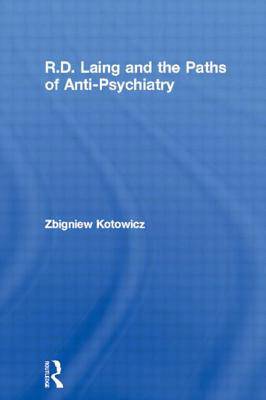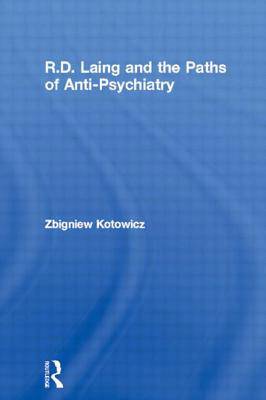
- Afhalen na 1 uur in een winkel met voorraad
- Gratis thuislevering in België vanaf € 30
- Ruim aanbod met 7 miljoen producten
- Afhalen na 1 uur in een winkel met voorraad
- Gratis thuislevering in België vanaf € 30
- Ruim aanbod met 7 miljoen producten
Omschrijving
In the 1960s and 1970s, the radical and visionary ideas of R. D. Laing revolutionized thinking about psychiatric practice and the meaning of madness. His work, from The Divided Self to Knots, and his therapeutic community at Kingsley Hall, made him a household name. But after little more than a decade he faded from prominence as quickly as he had attained it.
R.D.Laing and the Paths of Anti-Psychiatry re-examines Laing's work in the context of the anti-psychiatry movement. Concentrating on his most productive decade, the author provides a reasoned critique of Laing's theoretical writings, investigates the influences on his thinking such as phenomenology, existentialism and American family interaction research, and considers the experimental Kingsley Hall therapeutic community in comparison with anti-psychiatry experiments in Germany and Italy. The book provides a much needed reassessment and re-evaluation of Laing's work and its significance for psychotherapy and psychiatry today.
Specificaties
Betrokkenen
- Auteur(s):
- Uitgeverij:
Inhoud
- Aantal bladzijden:
- 142
- Taal:
- Engels
- Reeks:
Eigenschappen
- Productcode (EAN):
- 9780415116114
- Verschijningsdatum:
- 20/03/1997
- Uitvoering:
- Paperback
- Formaat:
- Trade paperback (VS)
- Afmetingen:
- 138 mm x 216 mm
- Gewicht:
- 185 g

Alleen bij Standaard Boekhandel
Beoordelingen
We publiceren alleen reviews die voldoen aan de voorwaarden voor reviews. Bekijk onze voorwaarden voor reviews.








